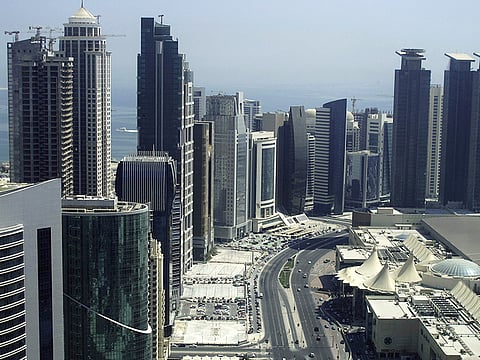Qatar terror financing cannot continue
The crisis will end only when Doha takes tangible measures sought by the GCC states

Qatar has been described as a top financier of terrorism by United States President Donald Trump earlier this month. It could mean that there is adequate proof of Qatar’s efforts to fund terrorism.
This information could pave the way for hauling Qatar to the International Criminal Court at The Hague for crimes against civilians and for its involvement in financing, supporting and providing arms to terrorist organisations.
The Qatari leadership does not seem to take the crisis with the seriousness it deserves. The tiny Gulf state relies heavily on the support of Iran and Turkey, who are unable to protect Qatar if a broader international coalition is built to deter it from continuing to finance terrorism.
Turkey is stuck in the Syrian crisis and cannot provide military support to Qatar, given its growing fears about the Kurds’ aspirations, despite the claim of sending about 5,000 troops to Doha. Iran, on the other hand, cannot stand against the might of the US to protect Qatar.
Commercial
The interest of Iran and Turkey is purely commercial.
The two countries want to benefit from the crisis by selling food stuff and other commodities to make it look as if Qatar is unaffected by the boycott imposed by the Gulf and Arab countries.
The fact is that the Qatari economy has taken a beating, the Turkish economy is weakening and the tens of billions of dollars invested in the Doha World Cup facilities may be lost, not to mention that the World Cup itself may be in danger.
Analysts say that the Emir of Qatar, Shaikh Tamim Bin Hamad Al Thani, made a grave mistake by betting on the Iranian Revolutionary Guards and the Turkish forces to protect Qatar.
He did not think rationally about ways to solve the crisis, but focused on protecting his regime against the anger of the Qataris, who realised that their country supports terrorist organisations while claiming to support the Syrian people at times and the Palestinian cause at other times.
Outcasts
It is puzzling to see the Qatari leadership risk the security and stability of its people by opening its doors to outcasts and individuals expelled from their countries to live in Doha and receive Qatari funds in the belief that they may come in handy one day.
Cloning the policies of major nations and playing with all sides is an unaccountable risk. Qatar is a small country that does not have the strength to face regional fury when its plots are revealed. This is precisely what happened when the Gulf Cooperation Council countries ran out of patience.
When the US president says he is aware that Qatar has been financing terror, it also means that previous US administrations have turned a blind eye to Qatar’s prodigality.
As part of the current US administration’s efforts to step up the anti-terror drive, it has looked at seriously blocking the funding sources. That’s where the move against Qatar comes in.
Trump’s statements confirm that US is no longer worried about the future of Al Udeid Air Base, the largest American military base outside America. The fact that the base is in a state that sponsors terrorism explains US diplomatic attempts to ease the crisis.
Shaikh Tamim’s request for urgent Turkish and Iranian protection also confirms the validity of the statements attributed to him about the dependency on Al Udeid Air Base to protect Qatar from the perceived threats from neighbouring countries. He relies, in his unconscious strategic vision, on the idea of foreign bases. All the media and funding tools that he possesses are not beneficial for the state or the Qatari people in any way.
Do Qataris benefit from sending tens of millions of dollars to terrorist organisations in Iraq and Syria? Is there a single Qatari who wants his country to send funds to the leaders of the Muslim Brotherhood? Do Qataris agree on spending their country’s money to malign the regime in Egypt through media advertisements in other countries? No Qatari in his or her right frame of mind will agree to all this.
The end to the Qatar crisis will not come through Turkey or Iran. It will come only when Doha stops financing terrorism and takes measures sought by the GCC states. And there must be verifiable evidence of that.
Dr Salem Al Ketbi is an Emirati political analyst, researcher and opinion writer.


